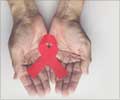The rate of HIV infection is surprisingly high among people aged over 50 years, the World Health Organization said Tuesday, warning that cases among older people may be growing worldwide.
The rate of HIV infection is "surprisingly high" among people aged over 50 years, the World Health Organization said Tuesday, warning that cases among older people may be growing worldwide.
"The scant data that exist suggest a surprisingly high prevalence and incidence of HIV among individuals 50 years of age and over," said the WHO in its March bulletin.According to authors of the study, in the United States, the proportion of people aged over 50 with HIV soared to 25 percent in 2006 from 20 percent in 2003.
In Europe, only eight percent of reported cases arise from older people.
In Brazil, the number of people over 50 with HIV doubled between 1996 and 2006, from 7.5 to 15.7 cases per 100,000 inhabitants.
"The frequency of infection with HIV in older people is worrying. We need to understand why and when these people are becoming infected so that public health campaigns can be better targeted to prevent such infections," George Schmid, a WHO scientist said.
Public perception of the disease may be part of the reason, with AIDS still being viewed as a "disease of young people." As a result, screening is less common among older people, leading to delayed diagnosis, said the WHO.
Advertisement
At the same time, older people have lower immunity, which could have led to more rapid deterioration from HIV infection to AIDS, said the study.
Advertisement
The authors noted that sexual activity remains the most likely mode of transmission for older people.
Potency drugs such as Viagra emerging in the 1990s have extended the sex life of older people, who are also less likely than younger people to practise safer sex, said the WHO.
Source-AFP
SRM













